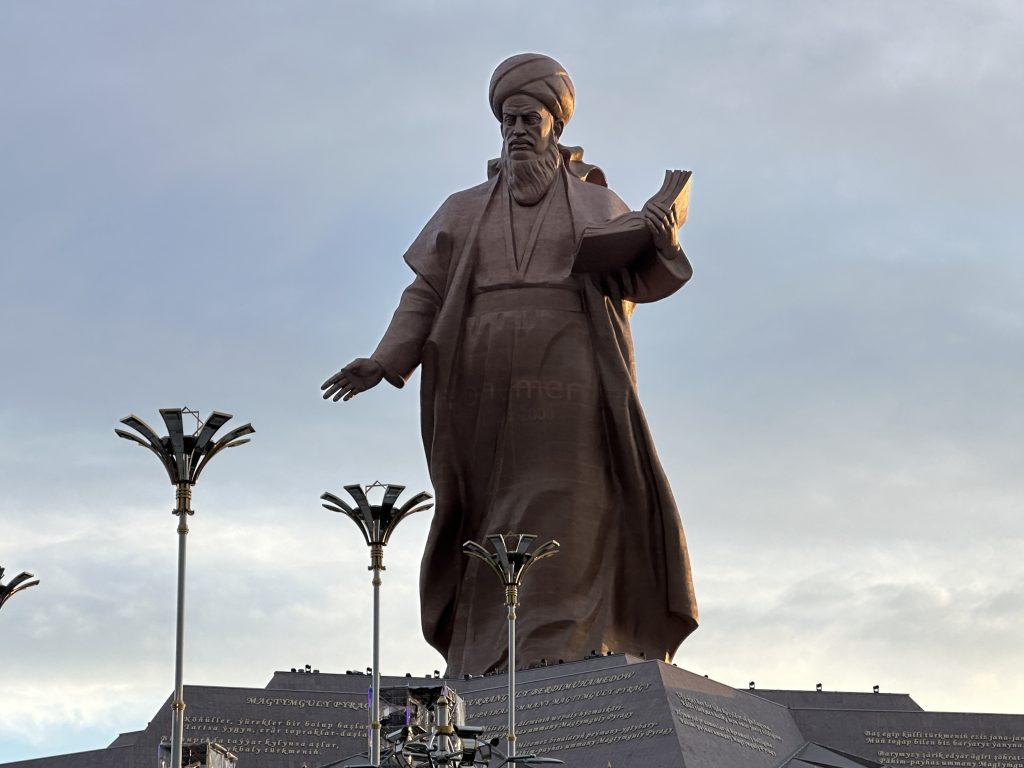Tariq Saeedi
In the first part of this series, we mentioned that the life of Magtymguly Pyragy was spent in a period of upheaval and turmoil. These circumstances were partly to shape the philosophy and message of the great philosopher and poet.
However, in the timeline given in the first part of this series, we also added some bits of information that don’t make any direct sense when trying to explain the message of Magtymguly.
These include:
- Russia abolished slavery in 1723. Eighteen years later, in 1741, Pope Benedict XIV issued Immensa Pastorum principis against slavery.
- The first step of the abolishment of serfdom in Austrian monarchy took place in the period 1781-1785. The second step was in 1848.
- Ludwig van Beethoven was born in 1770.
- From 1773 to 1775, there was the Pugachev’s Rebellion, the largest peasant revolt in the Russian history.
- In 1776, Adam Smith published the The Wealth of Nations.
- The French Revolution took place, 1789-1799.
From here, this series turns toward its main topic: Magtymguly Pyragy and today’s Turkmenistan.
Victor Hugo said, “Nothing else in the world…not all the armies…is so powerful as an idea whose time has come.”
Magtymguly was an idea whose time had come. The nature prepared him through very tough and panoramic training.
He lived during the times of turmoil and unrest. It is believed that at one time he was taken prisoner in Mashhad although why and by who and for how long, we don’t know.
After the early education in the Persian and Arabic languages at the hands of his father Döwletmämmet Azady, a leading scholar at that time, he went to several centres of learning.
He studied at the Idris Baba Madrassah in the village of Gyzyl Ayak, the Madrassah of Shir Gazi Khan in Khiva, and the main seminary in Bukhara. These were the highest centres of learning in the region.
On completion of his education, he worked as teacher and silversmith.
Magtymguly was into poetry from an early age. As a child he wrote, “By night when I was asleep… Revelation.”
He developed a realistic style of writing about 18th century Turkmen that proved very popular and ultimately led to him becoming one of the most cherished Turkmen poets of all time.
He was an adherent of the Naqshbandi sufi order.
Personal tragedy fuelled the intellectual powerhouse of the poet.
His elder brothers Abdulla and Mahammetsupa disappeared without trace when on an ambassadorial assignment on behalf of Ahmed Shah Durrani, the founder of the modern Afghanistan.
He could not marry Mengli, the woman he loved.
In devastating blows, he lost his sister and father.
* * *
Magtymguly was the first of the great poets of his time to use Turkmen instead of Farsi as the literary language. As such, he is the founder of Turkmen poetry, literature, and language. Magtymguly is widely revered as holy among Turkmen communities, and his poems are often quoted as proverbs in Turkmen society.
His impact on the Turkmen language is almost similar to the influence of Shakespeare on the English language.
The poetry of Magtymguly is highly personal and yet it is full of universal messages. There are layers of meaning in his poetry and the reader can get the inspiration according to their own state of mind and intellectual level.
Magtymguly speaks simultaneously to the individual and the nation.
Every great poet, thinker, philosopher, reformer, scholar, and author have their own unique place in history. Comparison among them is mainly for our own education.
As said a bit earlier, Magtymguly has had a similar effect on the Turkmen language that Shakespeare had on the English language.
In another dimension, we find some similarities between Magtymguly and Leonardo da Vinci.
Da Vinci was highly respected during his own time but his true genius has been coming to light slowly and gradually. We are still not sure we fully understand da Vinci.
The same is true for Magtymguly. We are still discovering new meanings in the poetry of Magtymguly and perhaps this will continue when people better than us are born after us and they would understand Magtymguly better. /// nCa, 20 June 2024 [to be continued]
